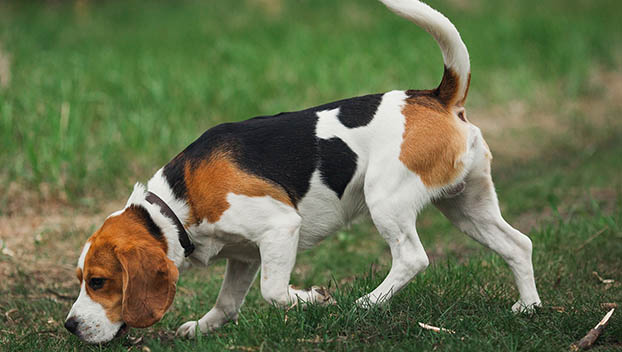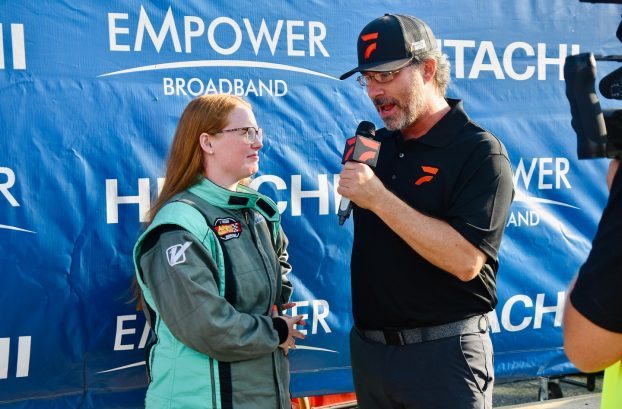Hunting with Hounds: Wildlife Resources proposes new regulations
Published 7:01 am Monday, June 3, 2024
|
Getting your Trinity Audio player ready...
|
Should there be more rules controlling when and how Charlotte County residents go hunting with hounds? The Virginia Department of Wildlife Resources has introduced several new proposals and now want residents across the Commonwealth to weigh in.
The 45-day comment period runs through July 5 on a change to require dogs used for hunting to have a GPS tracker and another that would clear up issues for enforcement officials dealing with complaints about hunting with hounds on private property without permission.
The Department of Wildlife board approved opening the comment period on the regulations March 20 after receiving a report it had requested from the Institute for Engagement and Negotiation at the University of Virginia addressing hound hunting and private landowner conflicts in deer and bear hound hunting.
The IEN report explained the Stakeholder Advisory Committee was created to consider these issues and more that consisted of 12 members representing organizations that included state government, hunters, animal organizations and landowners, along with two representing local governments, one person representing a tribal nation and six individuals serving as at-large citizen representatives.
The ‘hunting with hounds’ proposals
While there were multiple proposals that grew out of the advisory committee’s findings, the DWR board opted to send two through for public comment.
The first regulation would require deer and bear hunters using dogs to use GPS tracking.
“It aids in dog recovery both by showing location of the dog and tracking the dogs’ movement patterns, which assists in predicting where the dogs may be going to help facilitate recovery at opportune places,” DWR stated in a document explaining the issue on its website. “It also allows a hunter, should they desire, to show where their dogs have been (and also have not been) over the course of a hunt if that is in question.”
The second is a regulation that requires hunters to make a reasonable effort to keep hunting dogs off private land that they don’t have permission to use.
Historically, DWR stated in its explanation of the proposal, Virginia law and regulation have not prohibited hunting dogs from being present on the lands of others in most circumstances. It states that the majority of deer and bear hunting with dogs occurs without the request for involvement of law enforcement.
“DWR’s Law Division does, however, receive complaints and requests for service related to hunting with dogs throughout the hunting seasons,” the website document stated. “During the past year, 2002 of 6,128 total calls for service for hunting complaints mentioned dogs. By far, the most common complaint received is hunting dogs being present on private land without landowner permission.”
DWR went on to say that 699 of 749 calls for service involving dogs that did not allege a violation of law, and 188 of 327 calls for service involving dogs that did allege a violation of some type.
“This commonality is consistent with issues noted in other southeastern states.” DWR said the regulation’s explanation.
Charlotte County labeled a ‘hot spot’
However, in the findings reported to DWR by the institute, hound hunters complained the issue is not widespread and instead occurs in a few “hot spots.” Parts of Buckingham, Prince Edward, Charlotte, Lunenburg and Nottoway counties were shown to be part of a Central Virginia hot spot, with between 130 and 336 complaints filed between Jan. 2, 2022 and Jan. 7, 2023.
Landowners suggest that the reporting of incidents is skewed because many instances are not reported due to a fear of retaliation and a lack of follow through by law enforcement.
This second proposal suggests use of a complaint or notice-driven process to avoid creating new requirements for unproblematic situations and to allow both hunter and law enforcement efforts to be concentrated on avoiding or resolving potential conflict situations.
The language in the proposed regulation states that someone found to have been hunting with dogs without permission to be on private property twice in a year would “create a rebuttable presumption that reasonable efforts have not been undertaken.”
“To ensure that the hunter remains judged by his or her actions, on the other hand, this presumption is rebuttable, and the hunter may demonstrate that reasonable efforts are being implemented,” according to DWR’s website. “Finally, receipt of landowner permission for the presence of dogs on the landowner’s property in connection with the hunter’s activities resolves any need for further action.”
There was not a consensus on either of the two regulations in the comment period by members of the Stakeholder Advisory Committee.
County supervisors haven’t read yet
Boards of supervisors in Charlotte, Lunenburg and Buckingham counties have not considered taking a stand on these DWR proposals, their respective county administrators noted. However, Buckingham supervisors did approve a resolution in February opposing legislation that would require permits or registration to hunt with hounds.
“The Buckingham County Board of Supervisors hereby expresses its strong opposition to any requirements of obtaining a permit to hunt with dogs and urges the state legislature not to adopt such a proposal in light of its potential impacts on local traditions, autonomy, and the well-being of our rural community,” the resolution requested by a board member and approved by the supervisor reads.
Charlotte County Administrator Dan Witt noted that these types of complaints would usually be reported to the sheriff’s office.
“I occasionally hear from a property owner who would like the dog hunters to keep their dogs off their property and I occasionally hear from dog hunter advocates who enjoy dog hunting, and they talk in support of dog hunters’ rights,” Witt said Tuesday.
A request sent by the newspaper to DWR for comment and data showing the breakdown by county on trespass complaints involving dogs received no response.
DWR stated in a news release that the online comment system is the most efficient and effective way to submit views. Individuals may also submit comments by email at regcomments@dwr.virginia.gov or mail them to the department at Virginia Department of Wildlife Resources,
Attn: Policy Analyst and Regulatory Coordinator, P.O. Box 90778, Henrico, Virginia 23228. Comments must be in writing and accompanied by the name, address and telephone number of the party offering them. Comments submitted by means other than the online comment system must be received no later than 4 p.m., July 5, the agency stated in the release.
Editor’s note: Now we know what the two proposals are. But what did the report requested by Wildlife Resources add? Is there an actual problem in Charlotte and the surrounding “hot spots”? We’ll take a look at that in the next edition.




